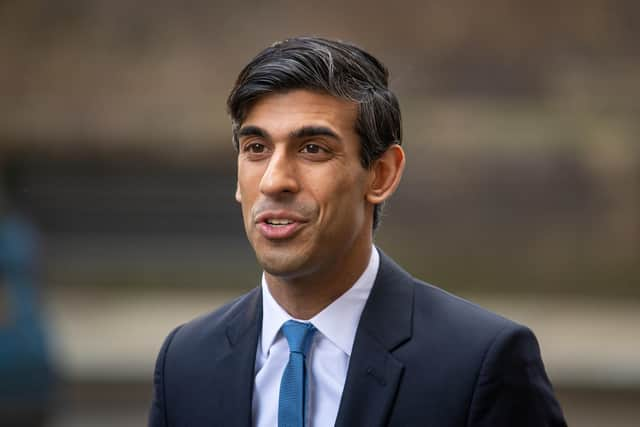Government considers winding down costly furlough scheme as it’s ‘not sustainable’
and live on Freeview channel 276
There are some concerns over the cost of the programme, with the latest Government figures showing 6.3 million people are having up to 80 per cent of their salaries paid by the Treasury at a cost of £8 billion.
The Times reported that Mr Sunak will announce plans next week on how to wind down the scheme from July, with options including cutting the subsidy level and lowering the £2,500 cap on monthly payments.


Advertisement
Hide AdAdvertisement
Hide AdBut Treasury sources insisted that ‘no decisions have yet been taken’ over the scheme which was introduced to prevent firms from laying off thousands of workers during lockdown.
Health Secretary Matt Hancock told Sky News that the Government must ‘wean off’ businesses from the scheme ‘as the economy gets back on its feet’.


Mr Sunak has acknowledged that the current level of expenditure was not ‘sustainable’ in the long term but promised there will be no ‘cliff-edge’ cut-off to the scheme.
He said the ministers were investigating ways to wind down the scheme in a ‘measured way’.
Advertisement
Hide AdAdvertisement
Hide AdLabour has called for the scheme to be more flexible to allow a gradual return to work.
The Liberal Democrats have called for a ‘tapered’ end to the programme, with 50 per cent of salaries paid for the first month after people return to work, then 30 per cent after the third month, with employers picking up the bill afterwards.
Comment Guidelines
National World encourages reader discussion on our stories. User feedback, insights and back-and-forth exchanges add a rich layer of context to reporting. Please review our Community Guidelines before commenting.